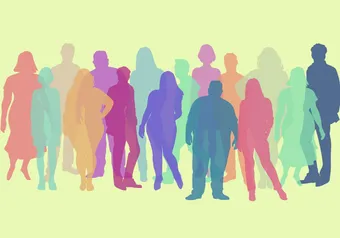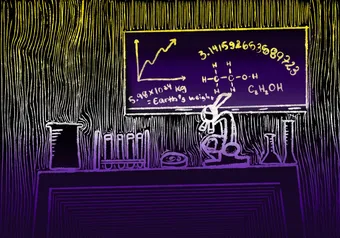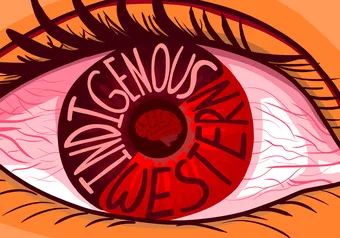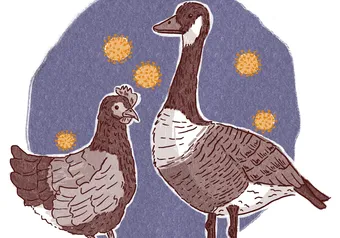Did you make a new year's resolution to read more? Or do you just really hate parties and want to bore people so much with facts you read from some book that they never invite you again? Either way, here's a list of science books — both new and old — to have you excited about science and spouting facts at people who couldn't care less in no time.
What's your favourite science book?
The War on Science: Who's Waging It, Why It Matters, What We Can Do About It — Shawn Otto
Peabody award-winning news anchor Don Shelby called it “one of the most important books published in the last decade.” I'm no Don Shelby, but I couldn't agree more.
War on Science is a meticulously researched book on the growing, multi-front assault on science and democracy. Otto lays out how everyone from journalists, to industry, to fundamentalists are degrading public trust in science and technology, and why that is just so dangerous.
It's a must-read for anyone who hopes to be an informed voter in the 21st century. Otto lays out battle plans for how to fight back and restore public trust in science so you aren't left feeling like the world is screwed.
—Koby Michaels, science editor
The Design of Everyday Things — Don Norman
Have you ever pushed a door that should’ve been pulled? Struggled with an overly complex coffee pot? Don Norman shares your pain.
[Sorry, video not found. You can contact webmaster@ubyssey.ca to fix the issue]
Filled to the brim with Norman’s experience as a cognitive engineer, his book is an ode to well-designed everyday objects and an unrelenting critique of things that should just work better.
—Jack Hauen, coordinating editor
The Double Helix: A Personal Account of the Discovery of the Structure of DNA — James Watson
Dr. James Watson (of Watson and Crick, the two scientists who first described the structure of DNA) recalls his experience of the discovery in this classic. While the book certainly has a 1960s view of women and their contributions to science (it's sexist — like, super sexist), the book has been undeniably important to science. Double Helix is perhaps the first book to describe the process of science to the public in an exciting, human and personal narrative.
Relive the wonders and excitement of one of the most important scientific discoveries in the history of humanity — just make sure you have a pillow to scream at every time Watson glosses over Rosalind Franklin's crucially important contributions (or calls her Rosie).
—Koby Michaels, science editor
Emotions Revealed: Recognizing Faces and Feelings to Improve Communication and Emotional Life — Paul Ekman.
In Emotions Revealed, Ekman explores the origins of human emotion — anger, disgust, fear, sadness, happiness — and how they are portrayed in the faces of people around us. By concentrating decades of research and theories into a comprehensive yet practical book, Ekman provides readers with mind-opening perspectives on emotions and the self.
This book is highly recommended to those who are interested in being a better communicator through science, sans the terrible migraine you usually suffer from books stuffed with incomprehensible research.
—Aiken Lao, design editor
The Martian — Andy Weir
What would you do if your spaceship crew thinks you’re dead and leaves you stranded on Mars, and then Mars repeatedly tries to kill you? Probably not what Mark Watney would do.
[Sorry, video not found. You can contact webmaster@ubyssey.ca to fix the issue]
If you like science fiction, you’ll love The Martian, and if you don’t like science fiction, you’ll love The Martian. Andy Weir, a self-proclaimed science geek, finds the perfect mix between science and fiction that will keep you flipping through the pages desperate to know what Mark Watney will do next. The book keeps the science (mostly) real and makes it more than you ever thought science could be.
Seriously, read it. You won't regret it, especially if you end up stuck on Mars.
—Rocio Hollman, staff writer
Beak of the Finch: A Story of Evolution in Our Time — Jonathan Weiner
You understand evolution, right? Wrong — so wrong.
Weiner returns to the islands of the Galapagos, where Darwin first conceived of his famous theory and where he documents the life work of Peter and Rosemary Grant. The Grants spent over 20 years on isolated, desert islands watching finch evolution with their very own eyes.
Beak of the Finch will have you rethinking evolution, science and your assumptions, and it will make you enjoy it.
There is so much more to the story of evolution that you've ever been told.
—Koby Michaels, science editor
Awakenings — Oliver Sacks (and Gratitude. And On the Move: A Life.)
Full disclosure: Dr. Oliver Sacks is a hero of mine and my favourite writer — but it's well-deserved. The late neurologist and writer was described by the New York Times as a “kind of poet laureate of contemporary medicine.” He certainly lived up to that title.
Perhaps Sacks' most famous book is Awakenings, which describes his experiences of patients he had who contracted sleeping sickness in the 1910s. Starting in 1969, Sacks administers a new drug to them called L-DOPA that caused the patients to “awake” for the first time in almost 50 years. Sacks describes the patients in a tenderness rarely thought to be associated with modern medicine, and inspired a Robert De Niro and Robin Williams movie of the same name and a Harold Pinter play called A Kind of Alaska.
[Sorry, video not found. You can contact webmaster@ubyssey.ca to fix the issue]
Sacks shows the human side of science, medicine and disease like no one else.
If you are a bit shorter on time, pick up Gratitude, a collection of four essays written by Sacks as he died of cancer in 2015. The book, published posthumously, is a heart-wrenching yet beautiful reflection on life, love, science and death. The essays can be read on the New York Times website (Mercury, My Own Life, My Periodic Table and Sabbath), but do yourself a favour and buy the book — you'll find yourself rereading it time and time again.
—Koby Michaels, science editor
P.S. Sacks' memoir, On the Move: A Life, is fantastic. Just read everything by Sacks.
Modern Romance: An Investigation — Aziz Ansari and Eric Klinenberg
Okay, some people might say this isn't strictly a science book, but it will certainly make you the least popular person at any party. Written by sociology professor Eric Klinenberg and comedian Aziz Ansari as a spiritual precursor to his (excellent) Netflix series, Master of None, the book comedically investigates love in a modern, digital age by looking at historical studies, current studies and original research conducted by the duo.
[Sorry, video not found. You can contact webmaster@ubyssey.ca to fix the issue]
Ansari's voice keeps the book easy to read and hilarious throughout, but also conveys a surprising amount of research and social science.
Is romance in today's hook-up culture, Tinder-fueled, instantly gratifying world really that different from yester-years? You'll have to read (and laugh) to find out.
—Koby Michaels, science editor
On the Origin of Species — Charles Darwin
It's the Jane Eyre of science books. Read it free, as it is super out of copyright.
—Koby Michaels, science editor
First online
Share this article



![['']](https://storage.googleapis.com/ubyssey/media/renditions/web-science-book-2.width-1000.format-webp.webp)





